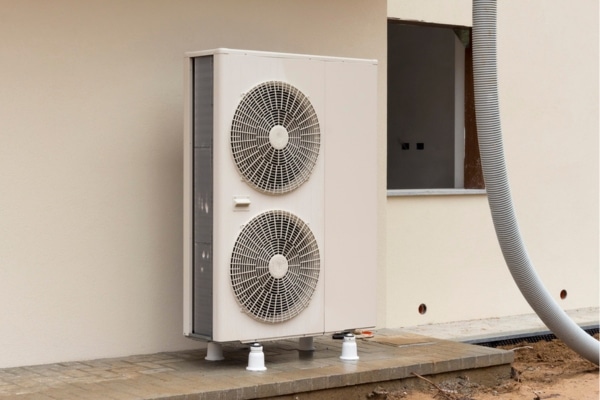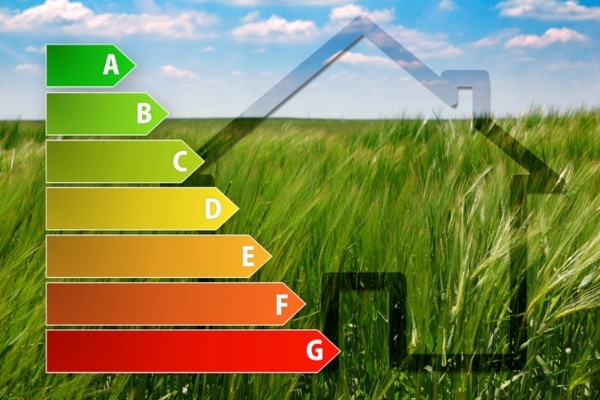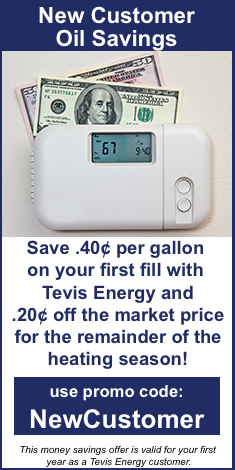Heating systems are essential in providing comfort and warmth in residential settings, especially during the colder months. Each system, from traditional furnaces to modern heat pumps, is pivotal in how effectively and efficiently a home is heated. This article from Modern Comfort discusses the fundamental differences between a furnace vs heat pump.
By understanding how they operate, their benefits, and their suitability for various environments, homeowners can make informed decisions about the most appropriate heating solution for their needs.
Furnace vs Heat Pump: Understanding the Basics
Understanding their basic functionalities and differences is necessary to make an informed decision between a furnace and a heat pump.
What is a Furnace?
A furnace is a heating unit that warms air or water through fuel combustion or electrical resistance. Common types include gas furnaces, which burn natural gas or propane; oil furnaces, which use oil as fuel; and electric furnaces, which generate heat through electrical resistance. Each type operates by drawing in cold air, heating it, and distributing the warm air throughout the home via ductwork or radiators.
What is a Heat Pump?

Contrary to traditional heating methods that generate heat, a heat pump moves heat between locations using refrigerant and electricity. It functions as a heater and an air conditioner by reversing its operation according to the season.
In the heating mode, it extracts heat from the outside air or ground and moves it indoors. In cooling mode, it reverses the process, removing heat from the house and releasing it outside. This dual functionality makes heat pumps a versatile and energy-efficient option for year-round climate control.
Ready to find the best heating solution for your home? Call Modern Comfort today for a free consultation, and let’s optimize your comfort together!
How a Furnace vs Heat Pump Works
Exploring the operating principles of both furnaces and heat pumps reveals how these systems provide heating and, in some cases, cooling to your home.
Operating Principles of a Furnace
Gas and oil furnaces ignite fuel to produce heat in the burner, creating hot combustion gases that heat incoming air via a heat exchanger. This warmed air is then circulated through the home’s ductwork. On the other hand, electric furnaces heat air by passing electricity through resistive elements, distributing this warmed air throughout the house.
Operating Principles of a Heat Pump
Heat pumps transfer heat using a refrigerant that cycles between indoor and outdoor units. They absorb external heat and transfer it indoors in heating mode. In cooling mode, the process reverses: the indoor unit extracts indoor heat and expels it outside, cooling the space. This cycle of evaporation and condensation within the refrigerant loop allows for efficient temperature regulation.
Energy Efficiency & Environmental Impact

Knowing the energy efficiency and environmental impact of heating systems is crucial for making sustainable choices in home heating.
Efficiency of Furnaces
Furnaces convert fuel to heat with varying degrees of efficiency, measured by the Annual Fuel Utilization Efficiency (AFUE) rating. High-efficiency models can reach AFUE ratings above 90%, signifying minimal energy waste. A furnace’s efficiency also depends on its type; for example, oil furnaces generally outperform gas ones in efficiency metrics, and models with sealed combustion systems are particularly effective.
Efficiency of Heat Pumps
Heat pumps are assessed by the Heating Seasonal Performance Factor (HSPF) and the Seasonal Energy Efficiency Ratio (SEER), respectively, reflecting their heating and cooling efficiency. They excel in efficiency because they transfer rather than generate heat, utilizing ambient air or ground temperatures. This operational method allows heat pumps to provide heating and cooling more sustainably and cost-effectively, particularly in regions with mild climates.
Environmental Considerations
Furnaces, especially those using fossil fuels, emit greenhouse gases like carbon dioxide during combustion. Emission levels vary by fuel type and efficiency. For instance, natural gas furnaces typically produce more emissions than oil-based systems.
However, heat pumps do not burn fuel, leading to lower direct emissions. Their environmental impact mainly depends on the electricity source; those powered by renewable energy are significantly more eco-friendly. Thus, choosing between these systems often hinges on local energy sources and environmental priorities.
Take the first step towards efficient and effective home heating. Schedule your free consultation with our HVAC specialists today!
Cost Considerations

Cost considerations for heating systems encompass both initial installation and long-term operational expenses. Heat pumps generally incur higher initial costs than furnaces due to their dual heating and cooling functions. These costs can also fluctuate based on home size and geographic location, with extreme weather conditions potentially requiring more specialized, expensive equipment.
Long-term financial factors include maintenance costs and system lifespan. Furnaces typically require regular maintenance and last 15-20 years. Heat pumps may need more frequent servicing due to their dual functions, but they can have a longer lifespan and offer higher energy efficiency, leading to lower monthly energy bills. This efficiency can offset the higher upfront costs, especially in regions with moderate climates.
Have questions about heating options? We have answers! Reach out now for your free, no-obligation consultation with our knowledgeable team. Call Modern Comfort now!
Suitability Based on Climate
Furnaces are particularly well-suited to colder regions where temperatures frequently drop below freezing. They can produce high heat levels quickly and consistently, which is essential in harsh winter conditions. This makes them a preferred choice in areas where maintaining a warm indoor environment is critical for comfort and safety.
On the other hand, heat pumps excel in moderate climates where temperature fluctuations are less extreme. They are most effective in environments that rarely experience freezing temperatures, as their efficiency decreases in severe cold. Heat pumps may need help extracting sufficient heat from the outside air in icy environments, leading to increased energy use and reduced heating effectiveness.
Pros & Cons of Heat Pumps and Furnaces

Advantages:
- Provides high heat output suitable for cold climates.
- Reliable and long-lasting with proper maintenance.
- Typically, the initial installation cost is lower than that of heat pumps.
Disadvantages:
- Higher operational costs due to fuel consumption.
- Produces emissions, impacting environmental footprint.
- Less efficient in mild climates.
Pros and Cons of Heat Pumps
Advantages:
- Efficient in moderate to mild climates; uses less energy.
- Provides both heating and cooling.
- Lower long-term costs due to higher energy efficiency.
Disadvantages:
- Higher initial costs for installation.
- Performance drops in freezing weather.
- Requires more frequent maintenance due to dual functions.
Begin your journey towards effective and efficient home heating by scheduling your free consultation with Modern Comfort’s HVAC specialists today!
Furnace Vs. Heat Pump FAQs

Explore common questions to better understand the differences between furnaces and heat pumps for your home heating needs.
What Are Heat Pumps’ Maintenance Requirements Compared To Furnaces?
Heat pumps generally require biannual maintenance checks to ensure efficient operation. These checks focus on cleaning filters and outdoor units and checking refrigerant levels. On the other hand, furnaces need regular filter replacements every 1-3 months during the heating season. They should also undergo an annual professional inspection to assess the integrity of the heat exchanger and ensure safe operation.
Can A Heat Pump Cool All Areas Of A Home As Effectively As It Heats Them?
Yes, heat pumps are designed to provide efficient heating and cooling. By reversing their operation in the summer, they can cool all areas of a home effectively. However, the efficiency can differ depending on the layout of the house and the system’s capacity, so proper sizing and installation are critical for optimal performance.
How Long Do Furnaces Typically Last Compared To Heat Pumps?
Furnaces typically have a longer lifespan, often lasting 15-20 years with proper maintenance, compared to heat pumps, which usually last about 10-15 years. The lifespan of heat pumps can be shorter due to their year-round operation cycle, which subjects them to more frequent use.
Are There Any Tax Credits Available For Installing Energy-Efficient Heating Systems?
Many governments provide tax credits and rebates for installing energy-efficient heating systems. These incentives encourage homeowners to choose systems with higher SEER and AFUE (Annual Fuel Utilization Efficiency) ratings, such as modern heat pumps and high-efficiency furnaces. Homeowners should consult local energy programs or tax professionals to understand the specific credits available in their region.
What Should I Do If My Heat Pump Is Icing Up In Winter?
Some icing on heat pumps during winter is normal, especially during cold weather. However, excessive ice buildup can hinder the system’s efficiency and damage components. If the defrost cycle does not resolve the icing, it is advisable to call a professional. A technician can verify system operation, check for refrigerant leaks, and ensure the defrost controls function correctly.
Maximize your home’s energy efficiency and comfort. Call Modern Comfort for a free consultation and discover the best heating solutions tailored to your needs.
Conclusion
Furnaces are ideal for colder climates due to their high heat output, while heat pumps are more suited to moderate climates and offer heating and cooling options. Furnaces tend to have lower initial costs but higher operational expenses and environmental impact. In contrast, heat pumps are more energy-efficient and cost-effective over time but have higher upfront installation costs. Given these differences, it’s advisable to consult with HVAC professionals like Modern Comfort, who can assess your specific home needs and geographic conditions to help you choose the most suitable system.
Contact Modern Comfort for Your Home Heating & Cooling Needs
Modern Comfort is your go-to source for top-notch heating and cooling solutions. Our team of certified professionals is equipped to handle everything from routine HVAC maintenance to complex repairs and full system installations. Each technician brings a wealth of expertise and commitment to ensuring your HVAC system functions flawlessly.
We pride ourselves on offering the most competitive prices for heating and cooling services in the area. Whether you’re considering a system upgrade or need a new HVAC installation, Modern Comfort can guide you to the perfect solution that fits your budget without compromising on efficiency, comfort, or air quality. Call Modern Comfort today to get a free in-home consultation and book your appointment.
If you’re located in Tower City, PA, investing in a new heat pump or furnace system to improve your home comfort in Tower City. Contact Modern Comfort, your reputable HVAC company to learn more about the benefits of a new home heating system in Tower City! We also service the following Pennsylvania areas: Berrysburg, Elizabethville, Gratz, Lykens, Muir, Orwin, Pillow, Reinerton, Williamstown, Wiconisco, and all surrounding areas.
You can click here to contact us now or call us at (410) 429-7252 (MD residents) and (717) 489-3939 (PA residents) to find out more! Click the link to view our service area.

Related Articles:

Recent Articles
